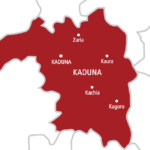Today, female writers such as Chinelo Okparanta, Nnedi Okorafor, Chimamanda Ngozi Adichie and many more are taking centre stage in Nigerian literature. But before them, older female writers had set the pace and left their footprints in a manner that may never be forgotten. They are the likes of Flora Nwapa, Zaynab Alkali, Buchi Emecheta, Zulu Sofola and Mabel Segun to mention a few.
Flora Nwapa, ‘Efuru’
Many may agree the journey all began with the likes of Flora Nwapa, described as Nigeria’s first female novelist. She was born in January, 1931 in Oguta (or Ugwuta), a town situated on the east of the majestically beautiful Oguta Lake in Imo State in southeastern Nigeria. Her training began early, from folklore she was introduced to as a child, to classic English literature. Perhaps it was her exploits and reconstruction efforts during and after the Nigerian Civil War, or the educator that was in her, but her writing came off as a breath of fresh air beginning from 1966 when Heinemann Educational Books Ltd published her first book titled, ‘Efuru.’ ‘Efuru’ is one of those books that may have graced the shelves of homes where reading was the norm back in the day. Stories of women who have had bad experiences with men must have had a different flavour from what is narrated – both in oral and written literature today – many would assume. But it may not have been different in Efuru, the title character’s village. Popular and a member of a distinguished family, she loses two husbands in the same way, each disappearing in a strange manner. Again, strangely, the first husband misses the burial of their child while the second, of her father. Alone, without a husband and childless, Efuru seeks answers to her predicament. After this novel came a spiral of more works from Nwapa, such as ‘Idu’ in 1975, ‘Never Again’ in the same year, ‘One is Enough’ in 1981 and many others. Her mission was captured in these words: “To inform and educate women all over the world, about the role of women in Nigeria, their economic independence, their relationship with their husbands and children, their traditional beliefs and their status in the community as a whole,” and “to write for European, American and Asian children about African children.” However, she preferred to call herself a ‘womanist’ and not a feminist.
Zaynab Alkali, ‘The Stillborn’
She is one of the first female writers to emerge from the north. She made her debut in 1984 with her novel, ‘The Stillborn.’ A synopsis on Amazon.com, an online retailer of books describes this work as “a milestone in African literature,” and that “this is the first novel from a woman writer with a Muslim background. It tells of a young woman’s experiences in the recurring conflict between traditional and modern values in Africa today, reflecting the author’s belief that women should strive to fulfil their potential.” One thing worthy of note about the book is the papers written about it, betraying the capacity it had (and may still have) to generate conversations which writers like Chimamanda Ngozi Adichie have taken up today. Alkali has definitely made a mark in her career as a writer through her books, including ‘The Virtuous Woman,’ a novel published in 1985, and ‘Cobwebs,’ a collection of short stories.
Buchi Emecheta ‘The Joys of Motherhood’
There is Buchi Emecheta, the writer who has published over 20 books, works that only create a certain nostalgia with titles that lead one to want to – even if passively – experience ‘The Joys of Motherhood’ (1979) through her work of that same title. There is certainly a deliberate attempt by female writers of her time to explain that dynamic nature of a woman’s life, a careful observer may conclude. This is not far from the truth. The central character is Nnu Ego, a girl who inevitably becomes a woman is crowded by a life that involves getting married, surviving in a polygamous home and bringing up her children; what a circle feminists frown on. So in the end the reader is disillusioned, for what he expected to be an example of what a woman enjoys in motherhood turns out to be like a narrative of ‘her lot’ after the circle of marriage and birth. Some of Emecheta’s books include ‘Second Class Citizen,’ (1974) ‘The Bride Price’ (1976), and ‘Order of The Empire’ (2005).
Zulu Sofola ‘Wedlock of the Gods’
A playwright, Sofola’s published works include, ‘Eclipso and the Fantasia, ‘Ivory Tower,’ ‘King Emene,’ ‘Lost Dreams,’ ‘The Love of Life,’ ‘Memories in the Moonlight,’ ‘Old Wines Are Tasty,’ ‘The Operators,’ ‘The Showers,’ ‘Song of a Maiden,’ ‘Sweet Trap,’ ‘Wedlock of the Gods,’ and ‘The Wizard of the Law.’ The professor of Theatre Arts used some of her plays to fight a bold battle for females, such as the mistreatment they experience in society. In ‘Wedlock of the Gods’ she raises questions on the traditions that reduce the capacity of women and through satire the negative effect of military dictatorship. So Sofola writes against social injustice and does not dwell on the feminist angle as did quite a number in her time. Her message is of fair treatment to all human beings and gives her the appearance of a civil rights advocate for human dignity ion Nigeria and beyond.
Mabel Segun ‘Readers’ Theatre’
In 2007 she was named joint winner of Nigeria’s most prestigious prize for literature, the LNG Nigeria Prize for Literature, awarded for her children’s book, ‘Readers’ Theatre: Twelve Plays for Young People,’ best described as an effective and exciting means of giving young people practice in using language in a natural way without having to memorise lines. Her works for children, particularly the classic autobiography ‘My Father’s Daughter’ and its sequel, ‘My Mother’s Daughter’ have generated quite a stir in university thesis and literary articles in the country. Her works for adults include a poetry collection, ‘Conflict and Other Poems,’ a collection of short stories titled ‘The Surrender and Other Stories,’ and a selection of her radio talks under the title ‘Friends, Nigerians, Countrymen,’ later retitled ‘Sorry No Vacancy.’ Her stories and poems have been translated into German, Danish, Norwegian, Greek and Serbo Croat languages.
The list continues with writers such as Catherine Acholonu, who wrote poetry, plays, essays and non-fiction, Christee Ajayi, Remi Adediji, and Teresa Meniro who played a prominent role in the promotion of children’s literature in Nigeria.
 Join Daily Trust WhatsApp Community For Quick Access To News and Happenings Around You.
Join Daily Trust WhatsApp Community For Quick Access To News and Happenings Around You.


